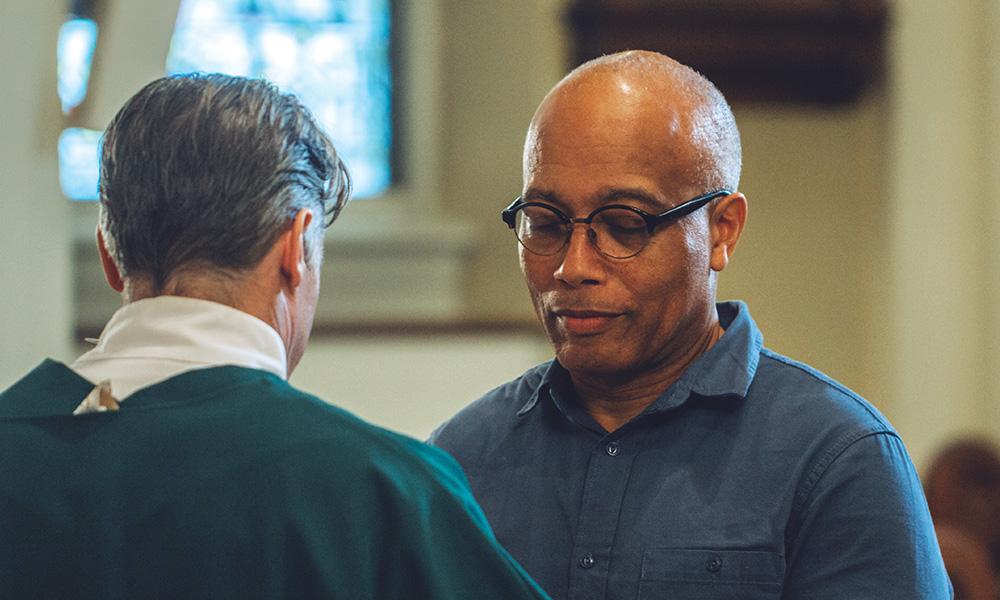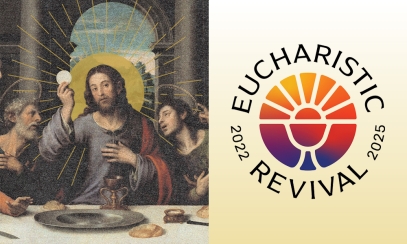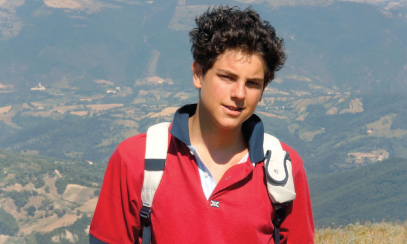
‘The first and loftiest nourishment by which our soul is fed …’
Understanding the Eucharistic Fast
Understanding the Eucharistic Fast
Among the principal goals of the Eucharistic Revival is to provide a more profound encounter with Jesus Christ in the Sunday liturgy as a point of unity among all Catholics and, through this powerful encounter, to find personal healing and courage to take the Gospel to a world in need of authentic love — the love of Christ found in the Eucharist.
Among the principal goals of the Eucharistic Revival is to provide a more profound encounter with Jesus Christ in the Sunday liturgy as a point of unity among all Catholics and, through this powerful encounter, to find personal healing and courage to take the Gospel to a world in need of authentic love — the love of Christ found in the Eucharist.
In this second installment of a series of articles being published throughout the Eucharistic Revival, we consider a very practical component of our eucharistic spirituality. We consider the significance of observing the eucharistic fast! Practically speaking, especially when compared to the parameters of previous eras, the regulations that are in place are relatively simple. The Church simply asks that we refrain from food and drink for an hour prior to receiving our Lord at Mass as a very practical way to prepare for the most intimate of unions with our Lord.
Many Catholics are, unfortunately, unaware of this regulation, and so in a period of revival, we would do well to revisit not only what the Church asks of us but also why.
Since her origins, the Church, in her pastoral zeal, has consistently implemented practical constraints and provided timely statements of doctrine aimed at “furthering devotion toward the Eucharist, the summit and center of Christian worship.” (Immensae Caritatis 1973, Sacred Congregation of the Sacraments)
Among them has been the solemn reiteration that “the Eucharist is always received by people who are fasting and likewise that this custom is observed throughout the entire world.” (Christus Dominus, Pope Pius XII, 1953)
From the earliest times, one of the customs observed by the Church (both priests and lay faithful) is that of fasting from all food and drink before receiving the most Holy Eucharist.
Tertullian, a second-century theologian, remarked that Holy Communion was to be received “before all other food,” thus implying that a practice of fasting was kept from midnight until early morning. The Church eventually recognized that there had arisen some very legitimate difficulties in keeping the fast from midnight, and thus, the regulations were subsequently adapted. The current law of the Church is to abstain from food or drink one hour prior to the reception of Holy Communion. Of course, medicine and water are always allowed.
Many may still ask the question, “Why should we fast at all?” The official language of the Church offers this explanation: “Abstinence from food and drink is in accord with that supreme reverence we owe to the supreme majesty of Jesus Christ when we are going to receive Him hidden under the veils of the Eucharist. And moreover, when we receive His precious Body and Blood before we take any food, we show clearly that this is the first and loftiest nourishment by which our soul is fed and its holiness increased.” (Christus Dominus)
In other words, it is, in a sense, “the least that we can do” to make a physical preparation for the reception of what we profess to be the most Holy Body and Blood of Jesus Christ.
As created persons, we exist both in body and soul, and therefore, both physical and spiritual preparations are appropriate. In an infrequently heard, though essential, passage of sacred scripture, St. Paul reminds us of the significance of making a spiritual preparation when he says, “A person should examine himself, and so eat the bread and drink the cup. For anyone who eats and drinks without discerning the body, eats and drinks judgment on himself.”
As we continue in the process of eucharistic revival, may we resolve with a new fervor and intentionality to be faithful to our physical preparations to receive Jesus Christ in the most Holy Eucharist.
Father Justin Ward, S.T.L., is the Diocese of Birmingham’s Vicar for Sacred Liturgy, Episcopal Master of Ceremonies, and Chair of the diocesan Eucharistic Revival Planning Committee. He holds a Licentiate of Sacred Theology from the University of Saint Mary of the Lake in Illinois.



